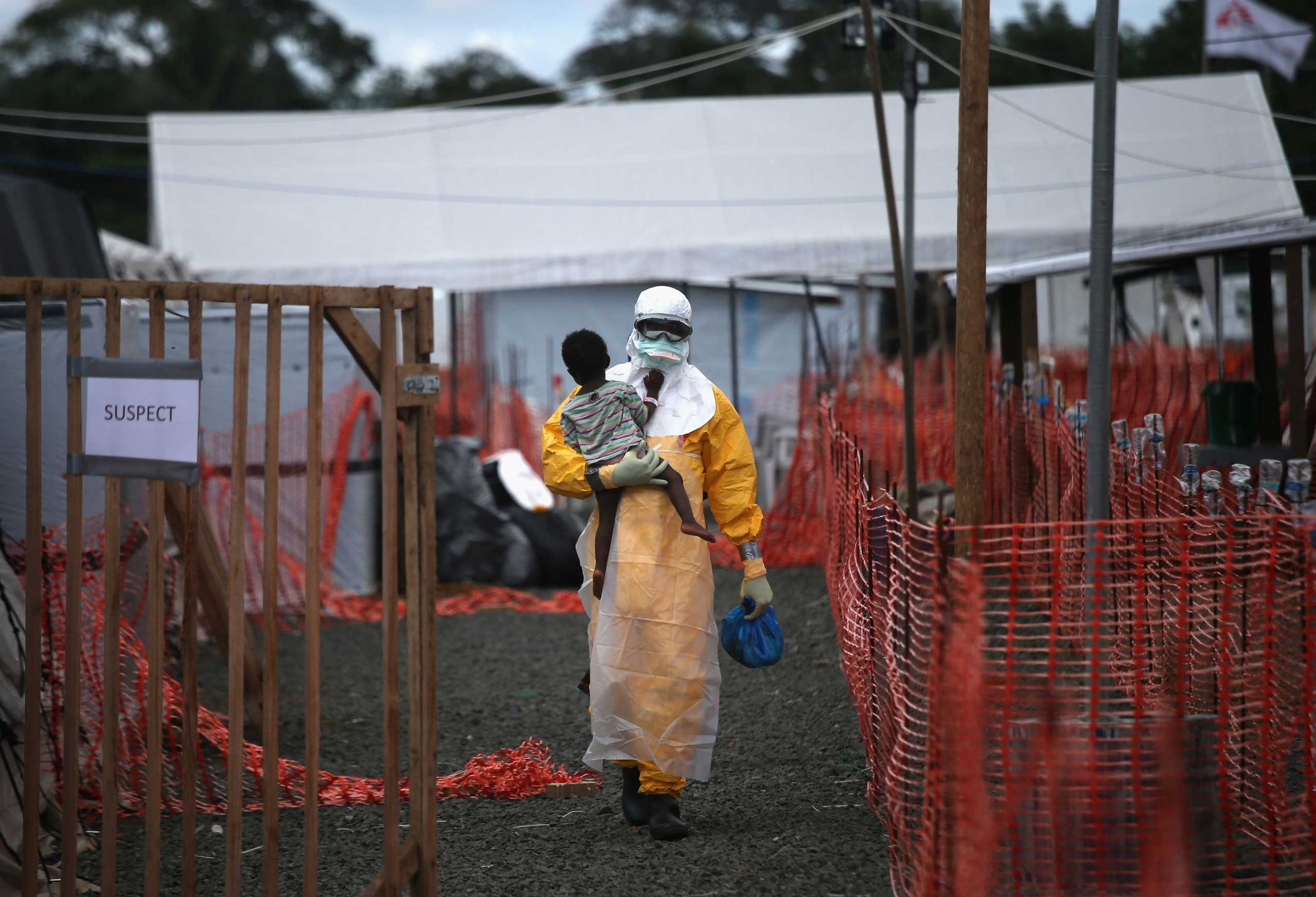
The 2014 Ebola outbreak, already the largest in history, could result in a two-year $32.6 billion economic loss by the end of next year, according to a projection by the World Bank.
The World Bank, known for providing loans to developed nations, on Wednesday issued a report that speculated on the economic woes that could come with Ebola if the epidemic were to “significantly infect people” in other West Africa nations beyond the three worst-affected countries of Guinea, Liberia and Sierra Leone.
The economic impact to that region could be lessened if immediate national and international action is utilized to stop the epidemic and alleviate the fear factor that is causing neighboring nations to close their borders and resulting in airlines and international companies to suspend their activities in the three worst-affected countries, the World Bank said. To that end, the U.S. has pledged to send thousands of troops, which earlier this week were building some medical centers in Liberia.
The World Bank already estimates that the short-term impact this year has lead to a $2.2 billion-$7.4 billion economic loss in West Africa. An additional economic loss of about $25.2 billion could occur, the World Bank said, if a slow-containment, “High Ebola” scenario were to occur. The World Bank also indicated that the Ebola outbreak could have more global economic implications.
“The international community now must act on the knowledge that weak public health infrastructure, institutions, and systems in many fragile countries are a threat not only to their own citizens but also to their trading partners and the world at large,” said Jim Kim, the World Bank president.
This article originally appeared on Fortune.com
More Must-Reads from TIME
- Donald Trump Is TIME's 2024 Person of the Year
- Why We Chose Trump as Person of the Year
- Is Intermittent Fasting Good or Bad for You?
- The 100 Must-Read Books of 2024
- The 20 Best Christmas TV Episodes
- Column: If Optimism Feels Ridiculous Now, Try Hope
- The Future of Climate Action Is Trade Policy
- Merle Bombardieri Is Helping People Make the Baby Decision
Contact us at letters@time.com